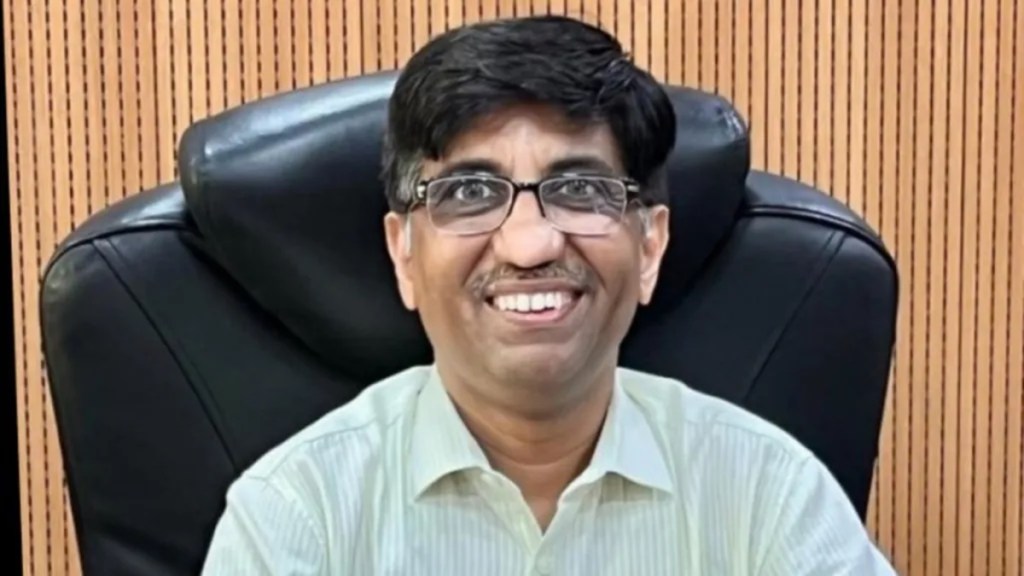Like a good teacher setting clear goals, Abhay Karandikar asserts: “the project will have to be cutting edge because we will not do any sub-critical funding.” The academician turned administrator, Karandikar, the secretary, department of science and technology (DST), is explaining the factors most crucial in the deployment of the Research Development and Innovation (RDI) scheme to fund private sector-driven innovation.
Finance minister Nirmala Sitharaman had in July last year announced this Rs 1 lakh crore fund. Of the total 1 lakh crores to be disbursed over 6 years, the first tranche of Rs 20,000 crores was allocated by the finance minister in this year’s budget to the department of science and technology.
On the current status and if the scheme was on track and when one could expect to see the first cheque being sent out, he explains: “We are currently in the process of making the operational guidelines for the implementation of the scheme.” This, he says, will be followed by getting the necessary approvals and “thereafter we should be ready to roll it out therefore starting January 2026 is when we could see the cheques going out.”
What could be the quantum of sums involved since the fund size is large? While no amount has been fixed, Karandikar says, it could be in the range of Rs 50 crore to Rs 300 crore but it will all depend on the nature of innovation and will vary from one project to the other.
Many in the industry are also of this view that the quantum of funds dished out in this case will be substantial and apart from individual projects, there could also be support for funds and even higher amounts for the Fund of funds.
“This fund will ensure critical funding requirements are met with the quantum of funding varying depending on the project. For example, he explains: “a cell or a gene therapy project may need the funds for clinical trials and that would be different from funding needed to back quantum computing or precision, climate-resilient agriculture. We could however consider a range of between Rs 50 crore and Rs 300 crore depending on the project.”
Game changer: Kris Gopalakrishnan

Kris Gopalakrishnan, philanthropist and co-founder of Infosys and one who, in his personal capacity, has been backing basic research, feels, “the RDI fund of 1 lakh crores (USD 12 B) targeting deep tech startups and in existing businesses could be a game changer. This can invest in equity, debt, hybrid instruments and fund of funds.”
This, he feels, is crucial. “We don’t have large Deep Tech VC funds in India. This RDI Fund can energise the deep tech ecosystem including other deep tech funds,” he says.
He has often argued that India needs to raise its spending on research up from just around 0.7 per cent of GDP to about 3 per cent of GDP.
AI & beyond
On AI (Artificial Intelligence), the two letters of the English alphabet that have come to redefine the tech revolution globally, Gopalakrishnan says, AI is leveraged by almost all startups to improve productivity. This is also contributing to increasing the valuation of startups.
Pure AI startups working on Large Language Models (LLMs), many argue is still small in India. One estimate by the Artificial Intelligence Index Report, 2025 brought out by researchers at Stanford University, India is still attracting a small share of Private AI investment at around $1.2 billion while it several folds higher in China and over $ 100 billion for United States.
Many in the Indian tech industry see the biggest attraction for India in its domestic market.
Consider the models that scaled riding on domestic demand: in the ecommerce space with examples like FlipKart and Myntra. The Fintech revolution in India that is riding on the UPI wave, the B2B commerce with players like Moglix, Zetwerk and Infra.Market; or the emergence of domestic brands like Nykaa. Options are now opening up in defence, agri and space. If any of them were to assure cutting edge innovation, Karandikar would be watching.

